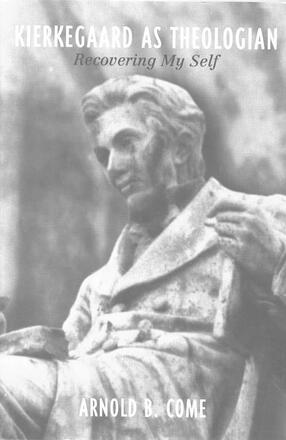
Kierkegaard as Theologian
Recovering My Self
Description
The companion volume to Arnold Come's Kierkegaard as Humanist, Kierkegaard as Theologian is an exploration of Søren Kierkegaard's deliberately Christian writings, from Upbuilding Discourses in Various Spirits (1846) to For Self-Examination (1851). In his later writings Kierkegaard sought to "get further forward in the direction of discovering the Christianity of the New Testament" to resolve his own spiritual crisis. His struggle to understand how authentic theologizing relates to the spiritual struggles of personal faith led him to a discussion of the three basic foci of his theologizing: the self as gift, that is, a creation "out of nothing" from God; the self as failure, which brings on a state of despair; and the self redeemed by God's love and healing compassion. Come probes some of the problematic aspects of Kierkegaard's theology. He addresses the question of whether God's high intentions and demands for human achievement of selfhood and spirituality justify the unspeakable sufferings entailed in human failures to fulfil those demands. He also explores the puzzling relation between Kierkegaard's seeming assignment of exclusivity to the Christian understanding and experiences of both sin and salvation as well as his assumption of the capacity of humans to recognize the need to turn to the eternal that is immanent in every human consciousness - so-called Religiousness A.
Reviews
"Taken together with his previous book Kierkegaard as Humanist: Discovering My Self, Come provides a synoptic, multifaceted guide to Kierkegaard's thought, recognizing that Kierkegaard is neither humanist alone nor Christian alone, but both. Kierkegaard a
"Come's masterly study of Kierkegaard as theologian fills a long-neglected gap in Kierkegaard scholarship. The illuminating comparisons of Kierkegaard with Whitehead, Tillich, and Barth help situate him on the theological map. Come recovers the heart of Kierkegaard, a Christian theologian striving to make the old drame of creation, fall, and redemption come alive for a generation which no longer felt its power." Lee Barrett, Department of Theology, Lancaster Theological Seminary